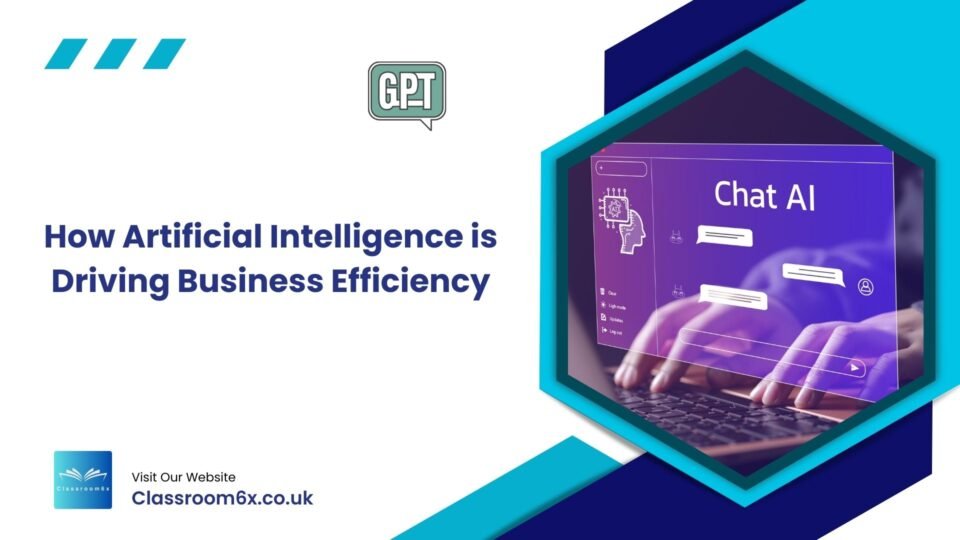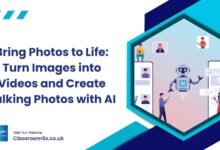
Efficiency has been the silent driver of business. Organisations that minimise waste, make faster decisions, and operate efficiently tend to outperform those burdened by inefficiencies. However, the problem is that the need for speed and precision is constantly increasing, and traditional methods are struggling to keep pace.
Artificial Intelligence has filled this void, not as something new, but as a measurable force of efficiency. What was once considered futuristic is now part of the daily workflow. AI-based tools are more precise than manual models for demand forecasting, real-time supply chain optimisation, and identifying financial risks before they spiral out of control. Efficiency is the main reason why many organisations should embrace AI.
Consider the contrast this makes. Algorithms are used to process data in seconds instead of having to go through spreadsheets by whole teams. Chatbots can now solve customer queries that previously accumulated in service lines. The production floors are fitted with AI-powered sensors that automatically regulate production, reducing the time and resources wasted. It is not about working with less – it is about working smarter that builds up over time.
In the following sections, we will discuss how AI is streamlining processes, cutting costs, and enhancing decision-making in industries. When efficiency is like a moving target for your business, learning about the role of AI may be the answer to remaining competitive in a fast-paced market.
Core Ways AI Enhances Business Efficiency
Automating repetitive processes
Monotonous activities are time and attention-consuming. Routine tasks, including data entry, scheduling, and reporting, are now done by AI-powered bots and are fast and accurate. You eliminate the manual layer, and you reduce delays and the possibility of human error.
This automation not only makes processes faster, but it is also consistent. AI-generated reports are drawn directly from real-time data, meaning that decisions are not made on old information. It’s similar to how AI in QA process automation reduces repetitive testing cycles: once machines handle the grunt work, teams can focus on higher-level priorities.
Enhancing decision-making with data insights
The information behind business decisions makes them only as strong as the decisions themselves. AI-powered analytics provide you with real-time reporting dashboards that indicate trends as they appear. This implies that you are able to take action when the opportunities are still fresh rather than waiting weeks to get the stagnant reports.
Predictive modeling goes a step further. AI predicts demand changes, financial performance, and customer trends by examining past data. Firms that embrace predictive analytics have an advantage in that they plan in advance, as opposed to responding to the situation.
Optimizing resource utilization
Resources, whether staff, budgets, or assets, are too valuable to waste. AI can help distribute them to areas where they will have the greatest impact. AI-based workforce management systems can automatically adjust staffing levels, while budget planning systems can allocate resources to the most successful projects.
AI also benefits supply chain and inventory systems. AI can monitor stock movement, predict shortages, and balance inventory across locations. The result is fewer bottlenecks, reduced storage expenses, and easier operations in general.
Real-World Applications Across Industries
Customer service and support
The chatbots and virtual assistants are now the initial point of contact with customers, powered by AI. They process queries immediately, clear simple cases, and forward complicated cases to human operators when it is necessary. This reduces the time taken to respond and also retains customers rather than frustrating them.
Individualization introduces an additional efficiency. AI systems learn behavior and preferences at scale, and personalize recommendations, follow-ups, and offers in a manner that previously required whole customer service teams. The outcome is quicker support with experiences that are personalized.
Healthcare and operations
AI is transforming healthcare processes, making them leaner and more reliable. Accurate diagnostic tools provide physicians with actionable information in a shorter time by interpreting scans and lab findings. Automation of patient care, including booking appointments and medication reminders, lessens the administrative workload on employees.
Cost savings also come from predictive maintenance of medical equipment. By monitoring usage data and identifying anomalies, AI prevents unexpected breakdowns that could disrupt patient care. Think of it as an autonomous test platform for hospital machinery: constantly monitoring, diagnosing, and adjusting before small issues turn into major failures.
Manufacturing and logistics
AI-based predictive maintenance is of great value to production lines. Machines are also monitored in real time, and algorithms are used to signal wear-and-tear before it leads to downtime. This maintains the smooth operation of the factories and minimizes costly emergency fixes.
In logistics, AI can be used to streamline routes, predict demand, and balance supply chains across regions. Smart forecasting reduces waste, inventory expenses, and delays. In industries where timing affects the profit margin, these capabilities generate a rapid multiplier effect.
Conclusion
When considering the themes of this article, it is difficult to overestimate the importance of AI. Its value has been demonstrated in various industries through the automation of repetitive workflows, supply chain optimisation, and improving the customer experience. Efficiency is not just about speed, but also about making better use of time, data, and resources.
The most remarkable aspect is balance. Repetitive and predictable tasks are automated, while creativity, strategy, and judgement are driven by human expertise. These two elements complement each other rather than competing with each other. Together, they form a business model that is more resilient and effective.
The final point is clear – AI is no longer a competitive advantage. It has become a prerequisite for any business aiming for sustainable development and the ability to adapt to a volatile market.














